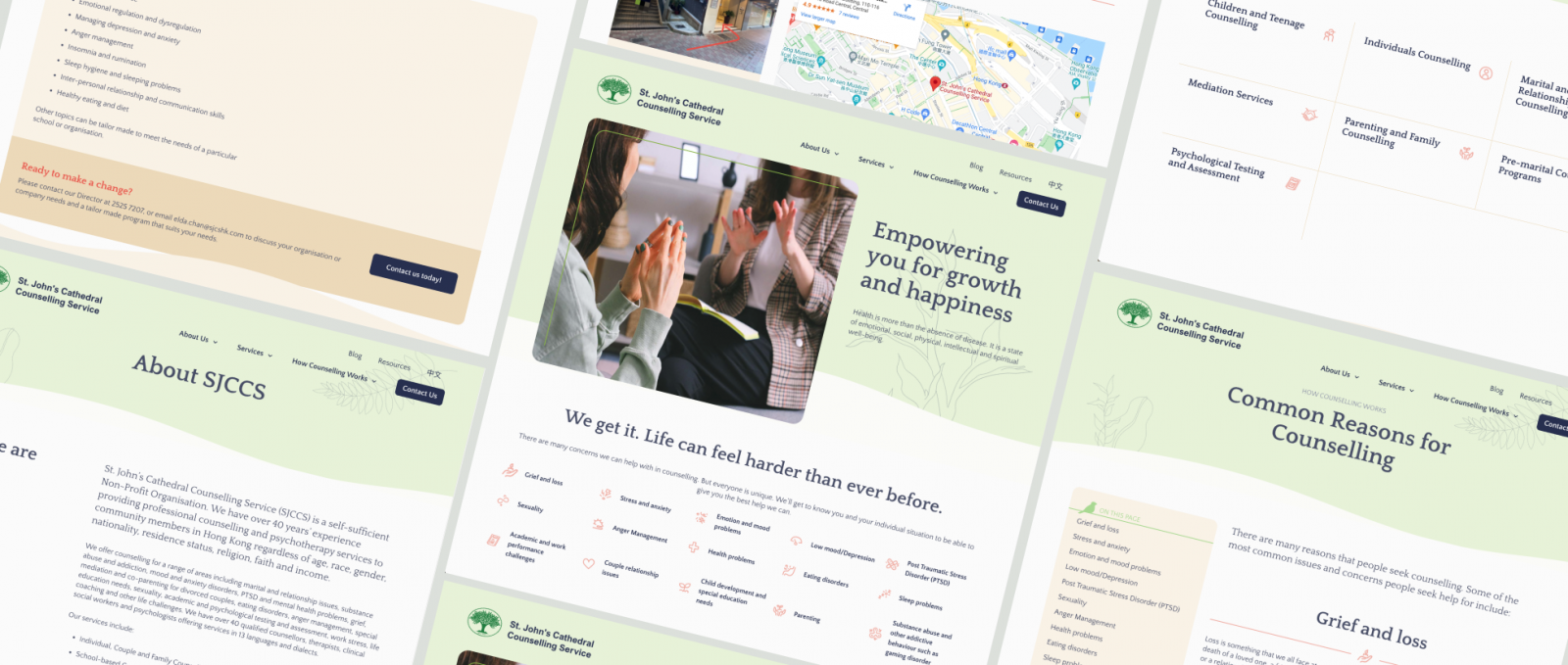Beginner’s guide to open-source CMS
What is open-source CMS? Which one (WordPress VS Joomla VS Drupal) is the best for my project?

You open a blank new file and are about to start drafting the project brief for your website project. Not knowing where to start, you ask Google for some quick hints and “open-source CMS” draws your attention.
Google continues to show you a list of names: WordPress, Joomla, Drupal, and perhaps a few more.
But what is a CMS? What does “open-source” CMS even mean?
Which of them, WordPress; Joomla; or Drupal, is the best for my project?

Don’t worry, we got you covered. Let’s talk about CMS first:
What is a CMS?
A content management system, CMS for short, is a software application that helps users create and manage content on a website. Simply put, CMS is a tool that allows you to make content changes to a website without having in-depth knowledge in coding.
For example, you can log in to the dashboard of a website which is built with a CMS, and manage or publish the content through its user-friendly interface instead of writing codes.
WordPress, Joomla, and Druapl are some of the more popular CMSs, or to be specific, open-source CMSs – meaning that the source code of these CMSs is accessible to all, so everyone can use or make changes to the source code and create the functionality they want.
Then what is WordPress?
WordPress is one of the most popular open-source CMSs. It was first considered a blogging platform, but now you can create almost any kind of website with almost any kind of custom features.
WordPress is separated into WordPress.com and WordPress.org. According to the official explanation,
WordPress is the free, Open Source web publishing software project, owned by no one individual or company. WordPress.com is a hosted blogging service run by a company called Automattic.
WordPress Support
WordPress.com offers a hosted service where you simply create an account, choose a plan, and then build a website directly on their platform.
WordPress.org is a self-hosted version. You have full control of your website, from downloading the software onto your computer to finding your own web hosting.
In this post, we will focus on WordPress.org, the open-source CMS platform for a clearer comparison with Joomla and Drupal.
What are Joomla and Drupal?
Joomla is also an open-source CMS. Similar to WordPress, it enables you to create any kind of website with different controls to manage content.
Compared with WordPress and Joomla, Drupal can be a niche choice when it comes to open-source CMSs. With its certification system, Drupal is a relatively popular choice for large corporations or governmental websites.
Here are a few examples of live website using these three CMSs:
WordPress websites
Drupal websites
Joomla websites
With some idea what these CMSs are, let’s rank them on the three aspects that concern people most:
- Popularity
- User friendliness
- Security
Rank on popularity 🔥
Based on the usage statistics of CMS by W3Techs (as of 23 June 2022), WordPress is used by 43% of all the websites after excluding the 33.1% of sites which have no CMS systems. That means WordPress occupies a market share of 64.2%, making it undoubtedly the most popular open-source CMS.
Compared with WordPress, the absolute usage percentage for Joomla and Drupal goes down to 1.6% and 1.2% respectively.
Rank on user friendliness 🌟
WordPress is arguably the most learner- and user-friendly CMS, and thus the easiest to manage. It comes with a friendly editing interface so users can easily tweak the look and feel of the site, change visual elements, and upload new contents. You can also install its extensive choice of plugins (which is almost 60,000 from their official directory alone) for an expansion of functionality. The high level of customisation makes design, development, and content management more approachable.
Joomla and Drupal are relatively more developer-centered. You will be more comfortable with their archaic interface if you have basic knowledge of HTML and PHP. The two platforms do not support as many add-ons as WordPress’ versatile plugins. In most cases, websites using Joomla or Drupal have custom made add-ons. This means that if you want to add features to your website which are not available in the form of extensions, you will have to create the features yourself, or hire a developer every time.
Rank on the level of security 🔒
From Sucuri’s Website Threat Research Report on its 2021 data, more than 95% of their clients’ infected CMS websites run on WordPress, followed by Joomla (2.03%) and Drupal (0.82%).
According to CVE data, WordPress and Joomla have found 4486 and 1282 vulnerabilities respectively since 2005, while it’s just 1102 for Drupal. It is fair to conclude that Drupal comes off as the most security-focused CMS.
The number may not look good for WordPress, but let’s not forget that it is also the most popular CMS for decades, and naturally becomes the hackers frequent target.
The flip side is that security vulnerabilities of WordPress are quickly detached and patched, and you will get access to a variety of plugins to tighten up your website’s security on your own. There is no doubt that WordPress’s plugins and security documentation do help users keep their websites secure.
Data also shows that most WordPress websites get hacked are stemming from preventable issues, such as outdated core software or plugins, weak password, insecure hosting environment, etc. As Sucuri summarised in its report, “there is no 100% security solution for website owners”. At its core, good security always boils down to these main principles:
- Keep the environment updated and patched
- Use strong password and change regularly
- Use suitable firewall to filter malicious traffic
“So which one is the best for my project?”, you wonder.

Why WordPress?
WordPress is a great all-around CMS for not just DIY-ers, but also those who would like to include custom features while still maintaining great control over editing.
Why Drupal?
Drupal is more geared towards professional developers and is more demanding in terms of resources input, from money to lead time. It can be your best option if first-class security is your website’s top priority.
Why Joomla?
Sitting in between WordPress and Drupal, Joomla also delivers a list of features to support your custom code with their administrator template. However, the learning curve of Joomla’s dashboard can be quite steep with a much smaller developer community.




